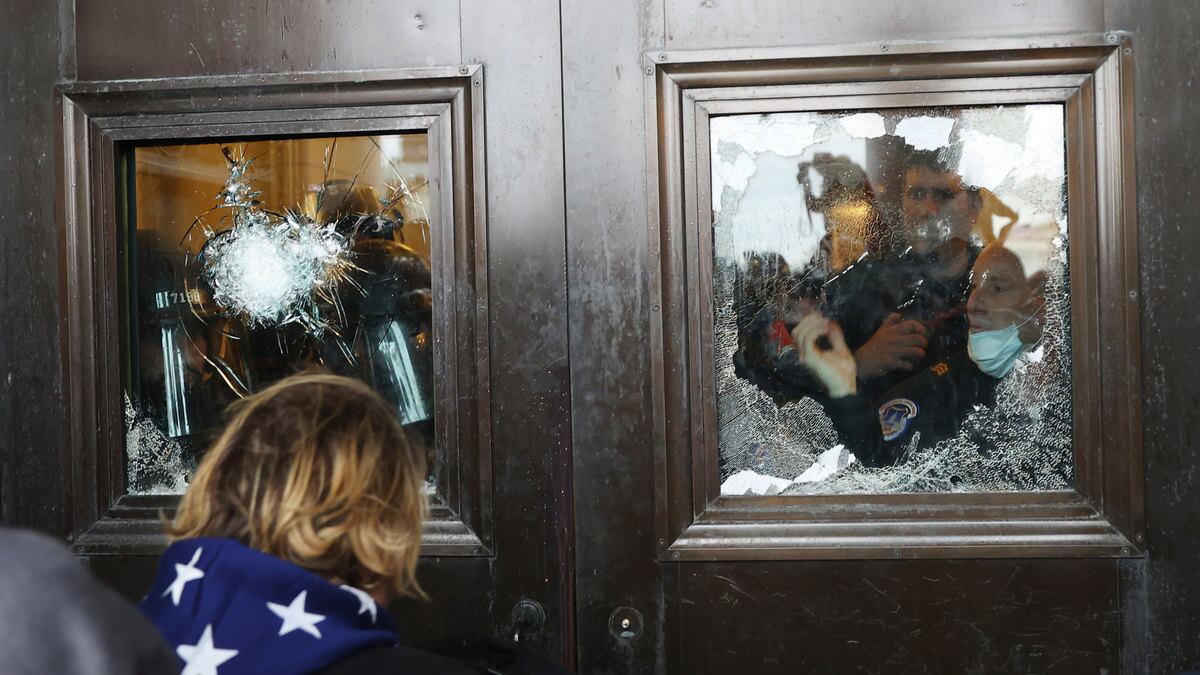When I was a kid, College Republicans were mostly seen as harmless nerds and the iconic “young Republican” was Alex P. Keaton, the preppy young Reaganite portrayed by Michael J. Fox on TV’s Family Ties. Sure, there were occasional kooks, but they were out of the mainstream.
Somewhere along the way, Republicans decided to ditch the clean-cut image in favor of an edgier vibe. They shed that preppy, “square,” suburban image to appeal to the Roseanne voter. In doing so, they became less appealing and embraced additional behaviors I found repellent.
The amazing thing is that this transformation of the modern Republican Party was a solution in need of a problem. For reasons that escape me, in 2016, Republicans concluded that this “Flight 93 election” necessitated electing Donald Trump. Since then, the GOP has rotted from the inside like a Trump casino. Every day, I hear ideas or words coming from the mouths of Republicans that sound discordant to my Reagan-conservative ears.
A recent example came from Rush Limbaugh. Just one day after MAGA insurrectionists stormed the U.S. Capitol building, he said, “We’re supposed to be horrified by the protesters. There’s a lot of people out there calling for the end of violence. A lot of conservatives, social media, who say that any violence or aggression at all is unacceptable regardless of the circumstances. I am glad Sam Adams, Thomas Paine, the actual Tea Party guys, the men at Lexington and Concord, didn’t feel that way.”
The obvious response is to chastise Limbaugh for suggesting these MAGA insurrectionists are the moral equivalent of our Founding Fathers. But I’m more interested in him embracing the notion that grievances can be resolved through violence—so long as the righteous party is sufficiently wronged and the violence is perpetrated by people who feel like they aren’t being heard. In modern America, this viewpoint has been most famously championed by the left. You might recall, for example, a controversial book titled In Defense of Looting. As University of Pennsylvania Professor Daniel Q. Gillon told GQ this summer, “Nonviolent protest brings awareness to an issue; violent protest brings urgency to an issue.” If memory serves me, conservatives did not generally agree with this assessment, despite the fact that the Black Lives Matter movement is in response to a real problem.
If you were delusional enough to truly believe Trump’s apocalyptic warnings that democracy was being stolen (forever!), that this presidential election was “rigged,” and that an illegitimate president was being installed (as at least some of the MAGA mob does), then you, too, might rationalize the use of violence in defense of liberty. Note: I am not endorsing this viewpoint. What I am doing instead is pointing out that (a) this viewpoint is dangerous, and (b) Limbaugh is now aping from the left. What is also remarkable is how Trump’s supporters seek to straddle contradictory arguments ranging from the whataboutism of “those people are radicals doing unacceptable things” to the fight-fire-with-fire response of, “let’s do it, too!”
Of course, when it comes to rationalizing or explaining the storming of our Capitol, there are numerous excuses and rationalizations. As The New York Times’ Jeremy Peters observed, Trump loyalists “downplayed the violence as acts of desperation by people who felt lied to by the news media and ignored by their elected representatives. They deflected with false equivalencies about the Democratic Party’s embrace of the Black Lives Matter movement, and “some even tried to dispute the fact that Trump supporters were actually the perpetrators, suggesting that far-left activists had infiltrated the crowd and posed as fans of the president.”
But I am especially interested in the fact that, rather than trying to be the opposite of their political adversaries, today’s right-wing activist is, instead, citing instances of bad behavior on the left to justify not only replicating that behavior but dramatically escalating it. In doing so, they are imitating the worst aspects of the left (not to be confused with liberalism or Joe Biden’s brand of Democratic politics).
This is a trend I first noticed during the Tea Party era when left-wing organizer Saul Alinsky became something of a folk hero on the right for his aggressive tactics—his famous rules for radicals included “Ridicule is man’s most potent weapon,” “Power is not only what you have but what the enemy thinks you have” and “Pick the target, freeze it, personalize it, and polarize it” —and when the #war hashtag started popping up on conservative Twitter.
The obsession with Alinsky continued into the Trump era, signaling just how far today’s right has ventured from their conservative philosophy to end up instead as right-wing radicals. Edmund Burke, the 19th century British parliamentarian famous for his critique of the French Revolution, is widely regarded as the founder of conservatism. Unlike Limbaugh’s Thomas Paine, Burke recognized the danger of mob violence and foresaw that, unlike the American revolution, what started with the storming of the Bastille would end in terror and bloodshed, and ultimately, dictatorship.
In this regard, Limbaugh is on to something. The MAGA radicals do have something in common with Paine: the inability to discern between a revolution that preserves liberal institutions and one that destroys them.





